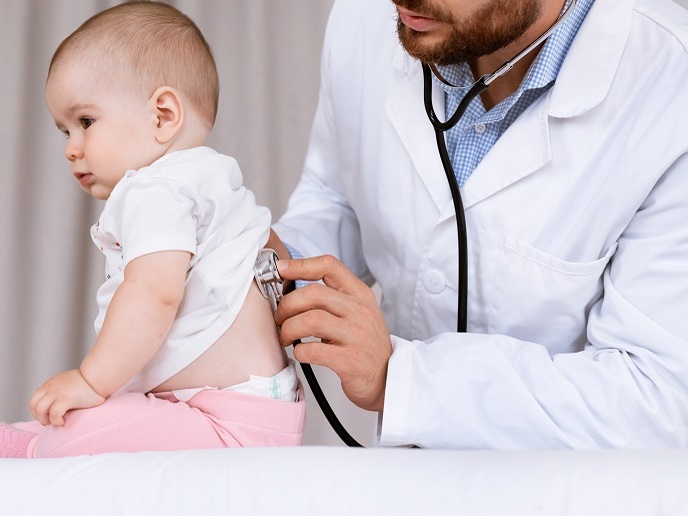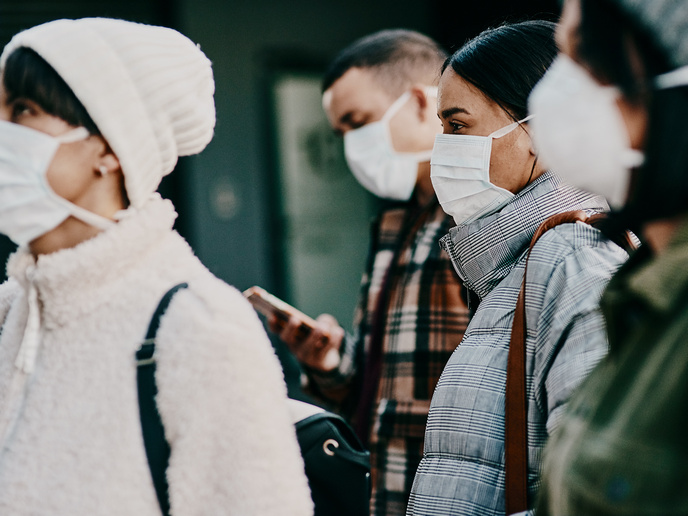Vaccine platform tackles rise in pertussis cases
Pertussis(opens in new window) can cause serious illness in people of all ages but is most dangerous for infants. “Before the widespread introduction of pertussis vaccines in the 1940s and 1950s, this was a leading cause of infant mortality,” says PERISCOPE(opens in new window) project coordinator Dimitri Diavatopoulos from Radboud University Medical Centre(opens in new window) in the Netherlands. “The first type of vaccines – called whole cell vaccines – really helped to get infant mortality rates down.” There were however concerns about side effects, which in some countries resulted in reduced vaccine uptake and consequent pertussis outbreaks. This led to the development of new vaccines – called acellular pertussis vaccines – which had fewer side effects. The situation today is that both vaccines are in use globally. Immunity to the disease appears to be fading however, given that pertussis incidences are increasing. “Both vaccines are not capable of eradicating pertussis,” explains Diavatopoulos. “In particular, increased circulation of pertussis presents a threat to newborns and older vulnerable adults. We owe it to the public to provide more durable protection.”
Investigating potential biomarkers
Addressing this challenge was the objective of the EU and industry-funded PERISCOPE project. Key aims included developing new models and assays to predict and evaluate vaccine efficacy and achieving a better understanding of the immune response to pertussis vaccination and infection. To achieve this, controlled human infection models were carried out. These enabled the project team to gain a clearer understanding of immunity to infection in humans. “This is something we can really learn from, because it allowed us to investigate potential biomarkers of protection directly in humans,” notes Diavatopoulos. Potential biomarkers of protection against infection were evaluated in these human trials, helping the project team gain new insights into the underlying mechanisms of protection. Clinical trials comparing the two existing vaccines were carried out across a range of age groups in Africa and Europe. Novel functional antibody and cellular assays were developed. “A key focus was placed on better protecting newborns,” adds Diavatopoulos. “We wanted to assess the impact of immunisation during pregnancy, and the subsequent immune responses of infants.” New insights relating to maternal immunisation are expected to emerge from this work over the next few years. Diavatopoulos sees this as critical as it could lead to improved protection for infants, the group most at risk from pertussis.
Viable vaccine platform
Moving forward, the project team succeeded in establishing a viable vaccine platform. “What this means is that the clinical infrastructure is now in place to perform vaccine studies across different age groups,” remarks Diavatopoulos. “We have new immunological assays to measure biomarkers of protection, and capacities to analyse all this complex data.” The hope is that this can accelerate the registration of next-generation vaccines.
Accessible support for health institutions
For Diavatopoulos, a key reason for the project’s success has been the close collaboration between academics and industry. “We were able to approach this challenge from different angles,” he explains. “Within the project we had clinical partners, microbiologists, immunologists, as well as people to carry out clinical trials and analyse data. Everyone contributed.” PERISCOPE’s results are accessible to all researchers. “Public health institutes for example could use PERISCOPE’s immune assays to assess who is at risk, and when to give extra vaccines etc.,” says Diavatopoulos.







